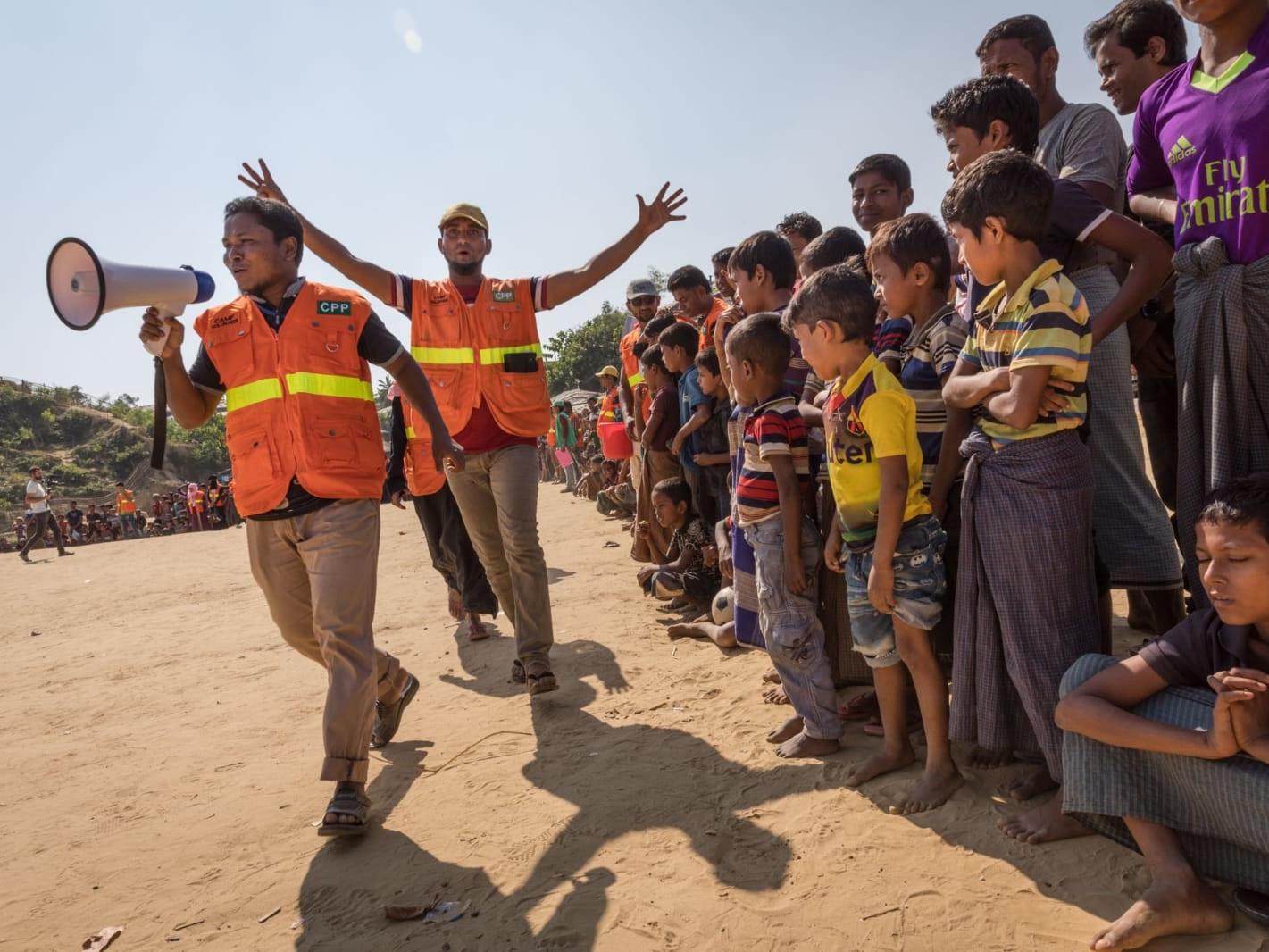
Rohingya volunteers are raising awareness of the COVID-19 pandemic and cyclone threat for 900,000 refugees in the Cox's Bazaar area of Bangladesh
By Denis McClean
GENEVA - The COVID-19 pandemic is causing enormous hardship for millions of migrants and displaced who need to be included in both response and economic mitigation measures being put in place across Asia and the Pacific, the world’s most disaster-affected region.
“This pandemic has exposed us to what a future 21st century disaster would look like. We can no longer think of tackling the challenges with our conventional 20th century tools,” said Manu Gupta today, co-founder of the Indian NGO SEEDS.
He was speaking to an audience of over 1,000 people, including disaster management specialists from 87 countries, who participated in the latest UNDRR webinar on lessons learned from the COVID-19 pandemic.
Helplines for women and children are being overwhelmed with distress calls because of the three-week lockdown which triggered huge internal migrations across India in response to the COVID-19 threat.
In Bangladesh, frantic efforts are underway to cope with the dual threat of COVID-19 and the oncoming cyclone season in the densely crowded camps which shelter some 900,000 Rohingya refugees.
War-torn Afghanistan is struggling to cope with the pandemic’s arrival and the impact on an internally displaced population of over two million people, with returnees arriving every day from neighboring Iran and Pakistan.
These were just some of the issues highlighted today in the webinar, “Reducing COVID-19 Vulnerability Amongst Displaced Populations and Migrants” featuring guest speakers from the International Organization for Migration (IOM), International Federation of Red Cross and Red Crescent Societies (IFRC), American Red Cross, the Danish Refugee Council and SEEDS.
Moderator, UNDRR’s regional chief, Loretta Hieber Girardet highlighted the important role that remittances from migrant workers play in economies across the region for an estimated 400 million people who were either sending them or receiving them, but these have now largely dried up, adding to the toll of poverty.
Migrants and displaced communities are incredibly vulnerable and disproportionately affected by the Coronavirus because recommended prevention measures such as social distancing and regular hand washing are not feasible due to their living and work conditions, said Maria Nenette Motus, Regional Director, Asia and the Pacific, IOM.
Dr. Motus highlighted that migrants are often excluded from public health care systems and may not be tested or treated for COVID-19 which can lead to worse outcomes for host populations. Their needs are also not being considered in the economic mitigation measures adopted by governments.